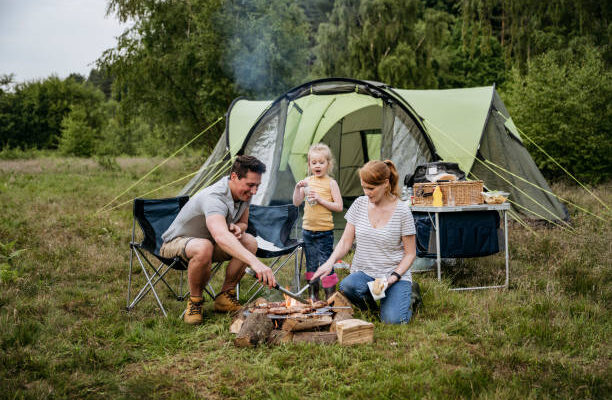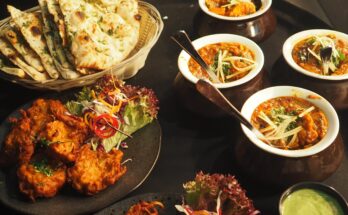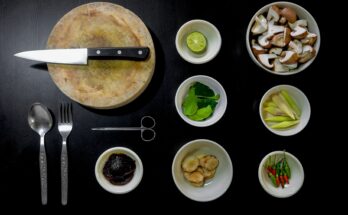Camping is a beloved outdoor activity that allows you to disconnect from the hustle and bustle of everyday life and immerse yourself in the beauty of nature. Whether you’re a seasoned camper or a novice, one of the most crucial aspects of a successful camping trip is preparing delicious and satisfying meals. After a long day of hiking, fishing, or simply enjoying the great outdoors, a well-prepared camping meal can be a source of comfort and energy. In this article, we will explore how to get ready for camping by discussing meal ideas and the essential steps to meal preparation in the wilderness.
Planning Your Camping Meals
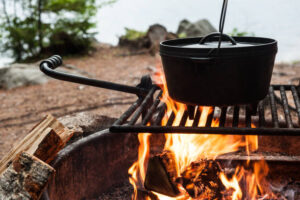 (Photo from iStock)
(Photo from iStock)
Before heading out on your camping adventure, it’s essential to plan your meals carefully. Planning helps ensure that you have the right ingredients, equipment, and cooking methods available to make your camping meals a success.
- Determine the Duration of Your Trip: The length of your camping trip will significantly influence your meal planning. For a weekend getaway, you can plan simple meals with minimal perishable items. For longer trips, you may need to think about more elaborate meal options and preservation methods.
- Consider Dietary Restrictions: Take into account any dietary restrictions or preferences of the individuals in your camping group. This includes allergies, vegetarian or vegan diets, and food preferences. Planning meals that cater to everyone’s needs is essential for a harmonious trip.
- Calculate Portion Sizes: Determine how much food you’ll need for each meal and snack. Keep in mind that camping activities can be physically demanding, so plan for slightly larger portions than you would eat at home.
- Create a Meal Plan: Once you’ve gathered all the necessary information, create a meal plan for each day of your camping trip. A typical plan might include breakfast, lunch, dinner, and snacks. Consider the ease of preparation and cleanup for each meal.
- Make a Shopping List: With your meal plan in hand, create a shopping list that includes all the ingredients you’ll need for each meal. Double-check your camping gear to ensure you have all the necessary cooking equipment.
Camping Meal Ideas
Now that you’ve laid the groundwork for your camping meals let’s explore some meal ideas that are not only delicious but also practical for the outdoors.
Breakfast:
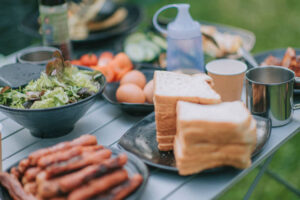 (Photo from iStock)
(Photo from iStock)
- Campfire Pancakes: Pack a pre-made pancake mix in a resealable bag. At the campsite, add water, mix, and cook the pancakes on a griddle over the campfire. Top them with fresh berries and maple syrup for a tasty morning treat.
- Breakfast Burritos: Prepare breakfast burritos at home with scrambled eggs, cooked bacon or sausage, cheese, and diced vegetables. Wrap them in aluminium foil and heat them over the campfire or on a camp stove.
- Overnight Oats: Combine rolled oats, dried fruits, nuts, and your choice of sweetener in a mason jar. Add milk or water, seal the jar, and leave it in your cooler overnight.
Lunch:
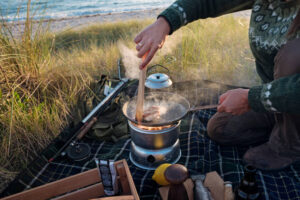 (Photo from iStock)
(Photo from iStock)
- Trail Mix and Jerky: For a quick and energy-boosting lunch, pack a variety of nuts, dried fruits, and beef jerky. This is perfect for a mid-hike refuel.
- Sandwiches: Prepare sandwiches with your favorite fillings, such as turkey, ham, or hummus with veggies. Wrap them in wax paper or foil for easy transport.
- Couscous Salad: Prepare couscous at home and pack it in a sealed container. Add diced vegetables, feta cheese, olives, and a simple vinaigrette dressing at the campsite.
Dinner:
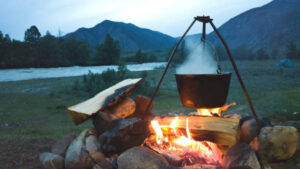 (Photo from iStock)
(Photo from iStock)
- Campfire Foil Packets: Create foil packets with your choice of protein (chicken, fish, or tofu), vegetables, and seasonings. Cook them over the campfire for a flavourful and easy dinner.
- One-Pot Pasta: Choose a pasta that cooks quickly, like spaghetti or penne. Boil the pasta, drain it, and then mix it with a simple sauce made from canned tomatoes, garlic, and herbs.
- Tacos: Pre-cook ground beef, chicken, or plant-based meat at home, and pack it in a sealed container. Heat it up at the campsite and serve with tortillas, salsa, shredded cheese, and fresh toppings.
Snacks:
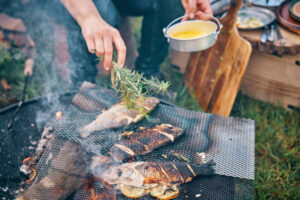 (Photo from iStock)
(Photo from iStock)
- Trail Mix: Customize your trail mix with a variety of nuts, seeds, dried fruits, and chocolate chips for a quick and energy-packed snack.
- Fruit Kabobs: Skewer bite-sized pieces of fruit like melon, pineapple, and berries for a refreshing and healthy snack.
- S’mores: No camping trip is complete without the classic s’mores. Pack graham crackers, marshmallows, and chocolate for a sweet treat by the campfire.
Essential Camping Meal Preparation Tips
- Food Safety: When camping, it’s crucial to maintain food safety. Keep perishable items in a well-insulated cooler with ice packs or frozen water bottles to prevent spoilage so that you are always prepared.
- Cooking Equipment: Ensure you have all the necessary cooking equipment, including a camp stove, portable grill, pots, pans, utensils, and a reliable campfire starter. Test your equipment before your trip to avoid any surprises so that you are safe.
- Fire Safety: If you plan to cook over an open flame, familiarize yourself with fire safety regulations and guidelines in your camping area.
- Leave No Trace: Practice Leave No Trace principles when cooking and eating in the wilderness. Dispose of food scraps and trash properly, and avoid disturbing wildlife.
- Clean-Up: Bring biodegradable soap and a sponge or scrubber for dishwashing. Dispose of grey water in a designated area, following Leave No Trace principles.
- Reusable Containers: Use reusable containers and utensils to minimize waste. Avoid single-use plastic whenever possible.
- Water Supply: Ensure you have access to clean water for cooking and drinking. Bring a water filter or purification tablets if you’re unsure about the water quality at your campsite.
- Meal Timing: Plan your meals to coincide with your daily activities. because a hearty breakfast is essential for a day of hiking, while a lighter dinner may be suitable for a relaxed evening by the campfire.
Conclusion
Camping can be a rewarding and memorable experience, made even better by delicious and well-prepared meals. By carefully planning your camping meals, considering dietary preferences and choosing convenient yet satisfying recipes, you can enjoy a hassle-free and tasty dining experience in the great outdoors.
Remember to prioritize food safety, practice Leave No Trace principles and invest in reliable cooking equipment to make your camping trip as enjoyable as possible. With the right preparation, you can savor the flavors of the wilderness while creating lasting memories around the campfire.
Reference:
Country Living
Want to know tips for meal prep, click on the link below:
https://theperfectblogger.com/how-to-do-your-meal-prepping-routine-at-home-everyday/

